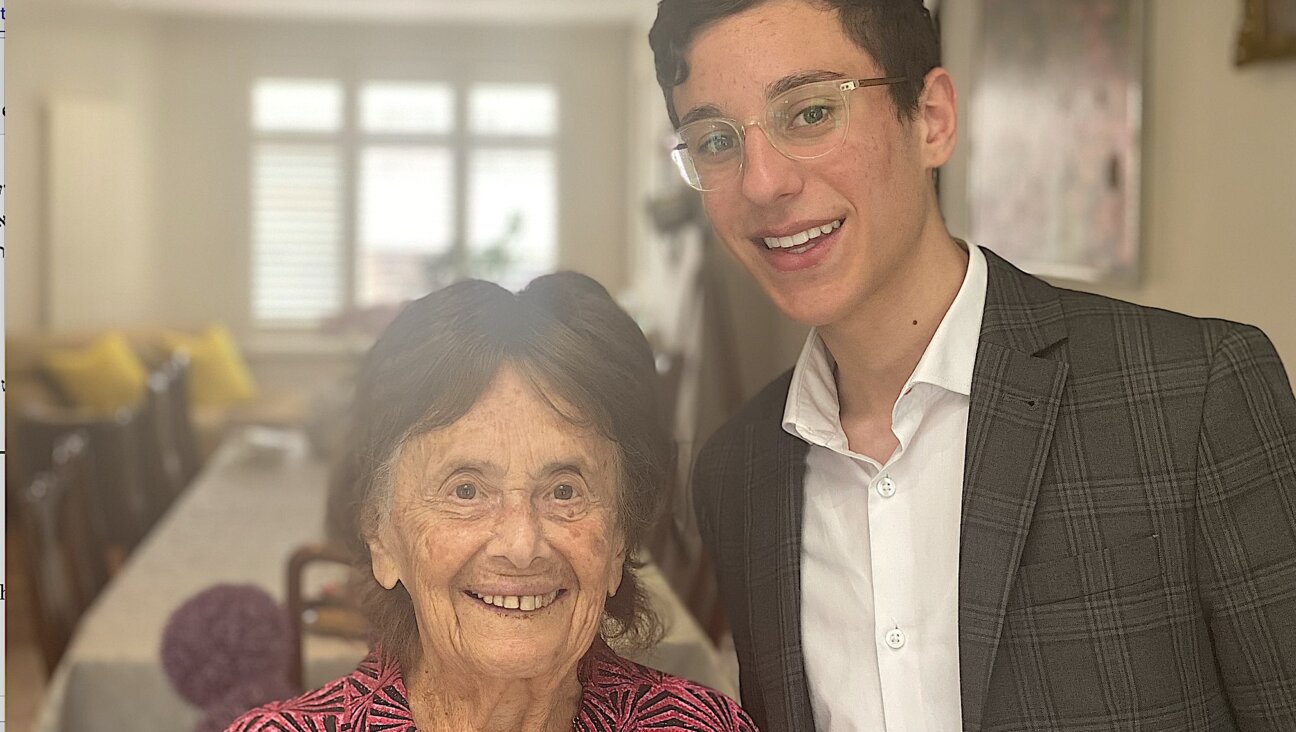Israelis Remain Unfazed After Cease-fire Fizzles
JERUSALEM – Just days after a bus bombing that killed 21 people, downtown Jerusalem was bustling with activity this week. The Chutzot Hayotzer street fair that has taken over the city’s pedestrian mall every evening for the past month continued unaffected. In fact, the crowds were thicker than ever.
Two months of relative calm following the start of the Palestinian hudna, or cease-fire, rejuvenated Israel’s stores, cafes and tourist sites this summer after a long spell of social and economic retreat. And if the street scenes in Jerusalem this week were any indication, most Israelis weren’t letting the hudna’s demise sour their mood.
For many, the demise of the cease-fire was not seen as catastrophic because they never believed the hudna was real or viable. In their view, the end of the hudna, for better or worse, was preordained.
Eli Kazhdan, a senior research fellow at the Jerusalem Center for Public Affairs, said that the “demise of the hudna and of the road map became inevitable” as the Palestinians failed to crack down on terrorist groups like Hamas and Islamic Jihad.
“The fundamental concepts of compliance and reciprocity were written on paper, but were not implemented,” said Kazhdan, who has just written a paper called “The Inevitable Disintegration of the hudna.” “It was just a matter of time” before the agreement collapsed.
For those on the right, the cease-fire’s end comes as something of a relief — the feeling that a sham has finally been exposed. Rosie Nathan, a self-described right-winger who runs a coffee shop in Modi’in, said that the hudna — indeed, the entire road map — was never workable. “The hudna was a time for the Arabs to reorganize and regroup. That’s all the hudna was,” she said. “It was never a concept in my mind.”
Despite their upbeat evening outings, Israelis this week tend to agree, at least in part, with Nathan’s hard-line perspective on the peace process. A poll taken the day after the attack and published last Friday in the Israeli daily Yediot Aharonot shows that just 35% of Israelis support continuing talks with Palestinian Prime Minister Mahmoud Abbas, known as Abu Mazen, while 62% are opposed. Only 37% believe Israel is required to continue taking steps that it is obliged to fulfill under the road map; 57% said no.
These numbers reflect a growing shift by the Israeli public against the Palestinians. Just last month, polls showed that Israelis supported the road map and the diplomatic process by a roughly 3-to-2 margin.
If Israelis are taking an increasingly hard line on the road map, there is no consensus on what to do next. Polled about whether to maintain the cease-fire with the Palestinians, Israelis were evenly split. They were similarly divided on the question of full-scale military action against Hamas and Islamic Jihad; 49% favor major military actions, while a combined 49% prefer other options: either waiting for the Palestinians to take care of terrorist groups (18%) or taking pinpoint action against terrorist leaders (31%).
The quandary over the best path to take now that the hudna seems over is reflected in the views of Aliza Ben-Tal, a self-proclaimed leftist living on Kibbutz Mashabei Sadeh, south of Beersheba. She said she now feels a near total despair at the situation, because while Israeli retaliations may bring quiet for a short period of time, “in the end it’s tit for tat, and the targeted assassinations are bringing more attacks on us.”
Not that the hudna was strictly observed by either side, she noted: “Tragically, what happened in the middle of the hudna was that there were attacks and there was retaliation.”
Ben-Tal moved to Israel from Los Angeles nearly 20 years ago, and for many years she would write long letters to her family about her wonderful life here and how they had to come and visit. “Now I don’t have the heart to write,” she said.
“My feeling is that we’re just doomed to kill each other,” she said. “I pray and I hope for something better, but I see one big explosion after another, like we’re heading toward the big boom.”
Here, Nathan agrees with Ben-Tal’s assessment. A big boom is coming, Nathan said, but she can see no other way to solve the problem.
Most Israelis fall between Ben-Tal and Nathan on the political spectrum, according to Yaron Ezrahi, a professor of political science at Hebrew University. And while the Israeli public may currently be opposed to the road map, he said, this reaction will likely be short-lived for those in the political center. “The Israeli public has two faces — not hypocritical, but two moods, or two modes,” he said. “One is revenge and aggression after an incredible carnage. That is the short-term response, except for the right, for whom it is a longer-term response. But for the majority, for about 70% of the Israeli public, it is a short-term response. The long-term response for 70% of the Israeli public is a territorial settlement, or two-state solution, and Israelis will follow after any leader who will deliver this with security.”
Nahum Barnea, considered the dean of political columnists in Israel, said, “There is no miracle here. Nobody expects a military solution that will solve the problem at once. We are quite experienced at this kind of thing. Americans sometimes expect one shot, as if it’s a Western, one offensive which will somehow solve the whole problem of terrorism. It never happens this way.”





















